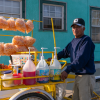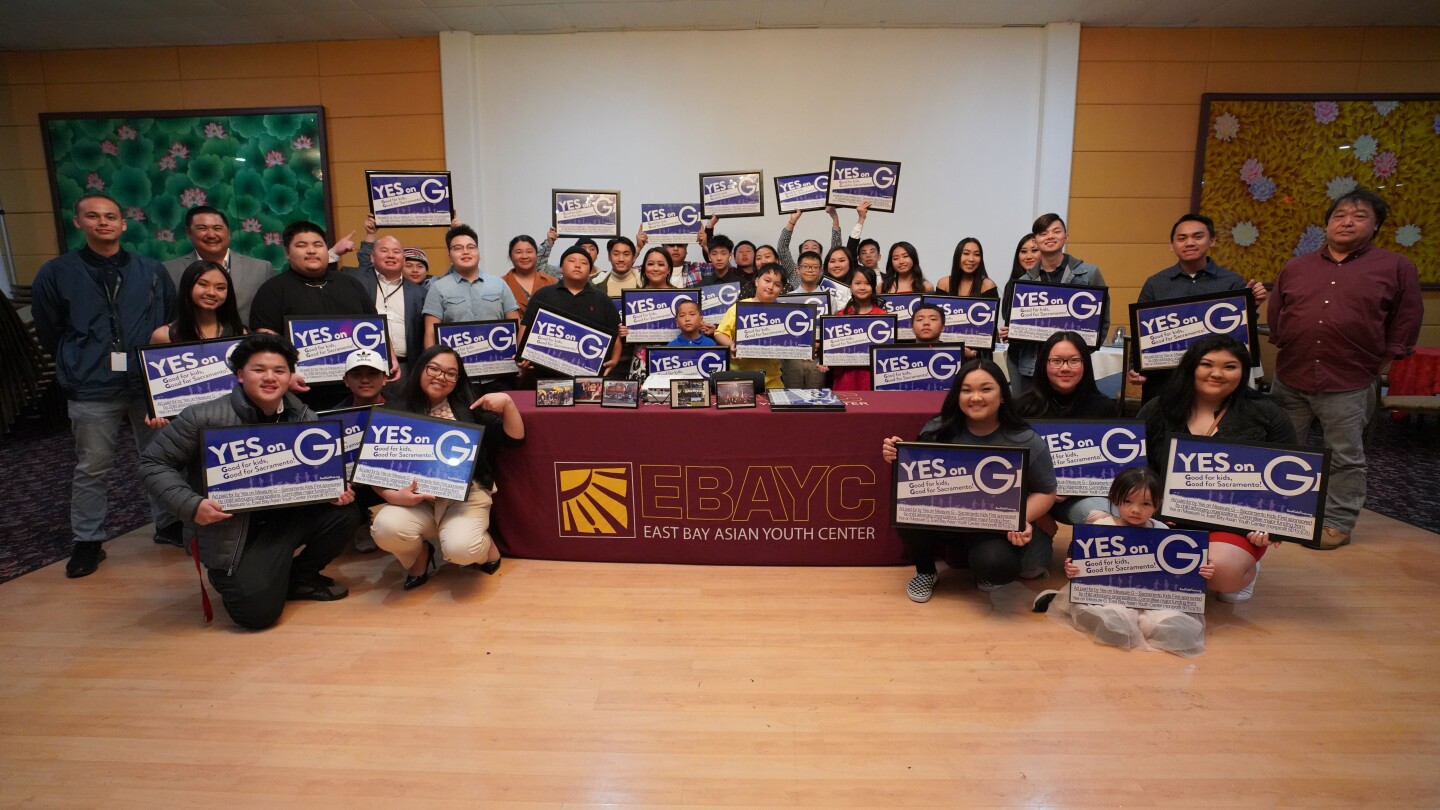San Diego Nonprofit Feeds the Entrepreneurial Spirit of East African Women

In the heart of San Diego, tucked away in the neighborhood of City Heights, a group of East African women settle into an inconspicuous office space to address the concerns of their immigrant community. It isn’t easy; employment in San Diego can be hard to find, the cost of living in the city seems to climb each day, and raising a family in a cross-cultural world presents daily challenges.
But for the United Women of East Africa, a challenge is an opportunity.
For the past 10 years, the United Women of East Africa Support Team (UWEAST) has been a force in the community, lifting up women and young girls to reach their full potential. The women — with backgrounds from all across East Africa — find both a space to grow as individuals and a support system among those with shared refugee experiences.
“Many [refugees] come with skills and talents,” said Agazit Tesfai, UWEAST’s program associate. “It's all about finding ways to make employers see the value in those skills. Even with a degree, it’s difficult to find a job to maintain the bills.”
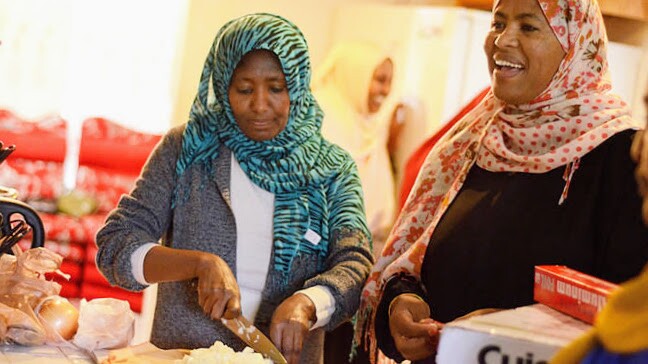
For many women, this means becoming entrepreneurs, taking their skills — and their spices — to the kitchen. UWEAST has two catering service programs aimed at promoting entrepreneurship through cooking: Hayaat Kitchens and Bilal and Baraka.
Hayaat Kitchens, UWEAST’s newest program, began in January. The catering service offers North and East African food to students and passersby at the weekly UC San Diego farmers’ market.
Some of the women who participate in Hayaat Kitchens have been turning their love of cooking into a business for years. UWEAST launched its first catering service, Bilal and Baraka (which translates to Beginning and Blessing), in 2013 to give refugee women a chance to make their own money while connecting with the larger San Diego community. Clients include UC San Diego, San Diego State University, and nonprofits, such as Women Give.
“[Bilal and Baraka] helps [the women] not only economically but socially because they feel like they’re doing something meaningful and connecting to other women,” said Sahra Abdi, UWEAST executive director.
As one of UWEAST’s founding members, Abdi speaks excitedly about Bilal and Baraka and the opportunities it has opened up for women. The catering service was inspired by a similar project in Ethiopia, in which women were able to save money to start their own businesses, like laundromats or even ice cream trucks. The women of UWEAST mirrored this collaborative approach, with all the women pooling money together to start Bilal and Baraka.

“We know cooking and we can make money out of that,” Abdi remembered thinking. Today, there are 18 women participating in the program, serving Ethiopian, Somalian, Eritrean and other East African cuisine. Some of their most popular dishes include sambosas, a fried dish filled with meat, lentils or cream cheese and coconut, and injera, a sourdough flatbread which is eaten almost daily in Ethiopia and Eritrea.
The need for entrepreneurial programs for immigrants, such as Bilal and Baraka and Hayaat Kitchens, is particularly evident in San Diego, the county with the most refugee arrivals in California.
Awichu Akwanya, UWEAST’s program director, said many members of the community arrived in San Diego's City Heights neighborhood in the 1980s and 1990s, fleeing Somalia and Ethiopia. Today, refugees come to the city to be near friends or family — and to find familiarity in an unfamiliar place — but they are landing in communities with unaffordable housing and few opportunities to earn livable wages.
Immigrant communities are increasingly turning to temporary, informal work in transportation, childcare, restaurant and domestic help to make ends meet. Although San Diego’s unemployment rate dropped from 11.3 percent in 2010 to 5.9 percent in 2017, a study on the San Diego refugee experience by the Partnership for the Advancement of New Americans (PANA) found high levels of unemployment in refugee communities, especially among women.
“Refugees face the barrier of not having their qualifications and skills recognized in their new home,” the study noted.
Meanwhile, the cost of living in San Diego is escalating. The average value of a home in San Diego County is $563,800 and the median gross rent $1,598, according to the 2017 Census Bureau’s American Community Survey. Forecasts predict these prices will continue rising. Gentrification is already pushing East African residents out of City Heights, Akwanya said.
The difficulties facing the East African community in San Diego make UWEAST’s entrepreneurial programs all the more valuable. For the women at UWEAST, however, much of the important work starts before women join the workforce.
In addition to Bilal and Baraka and Hayaat Kitchens, the organization has more than 20 programs focused on improving the lives and well-being of community members.
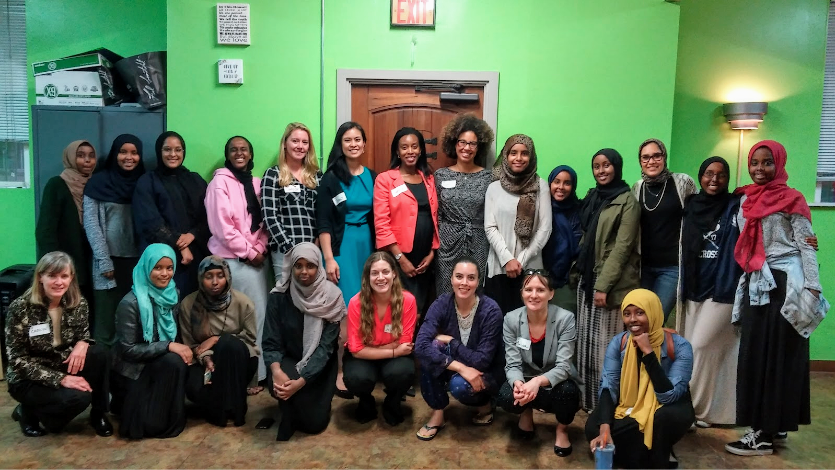
Connecting Souls is a monthly program aimed at teaching adolescent girls to plan for a career. Women Give, a San Diego nonprofit, helps to bring women working in different fields to speak with the 14-to-19-year-old girls. Abdi describes them as “role models,” adding that many of the girls want to be lawyers and engineers because they now believe it's possible.
UWEAST also launched Making Connections, its first program for young men. The program teaches the 16-to-25 year olds about mental health and gives them a safe place at the UWEAST office to hang out. Making Connections works in collaboration with the African Coalition Workforce, which helps young men in the program identify personal career or education paths.
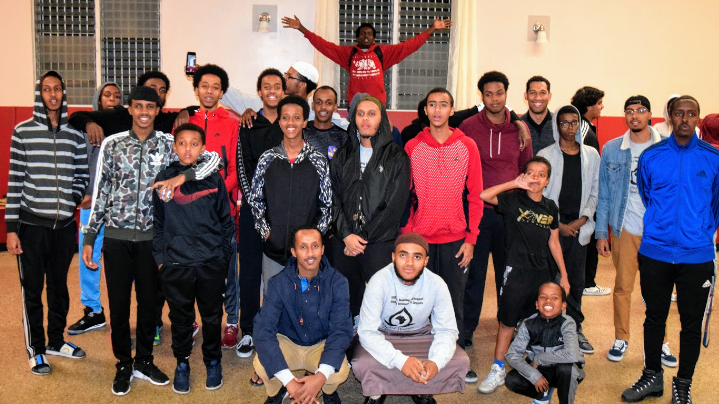
UWEAST’s programs focus on helping women and young adults adapt to a new culture while financially empowering them to seek future careers. The organization also carries a strong sense of community, with many collaborative efforts between the African Coalition Workforce, PANA and other East African groups in City Heights.
Abdi said she never thought she would be leading UWEAST — she always preferred the behind-the-scenes organizing — but finds the work fulfilling. She can see the way it’s impacting her community and she feels a part of the solution.
“Instead of waiting for a solution, we are proactive,” she said. “The girls are feeling proud of who they are. We’re not 100 percent there yet, but we’re going forward.”






